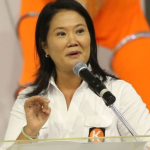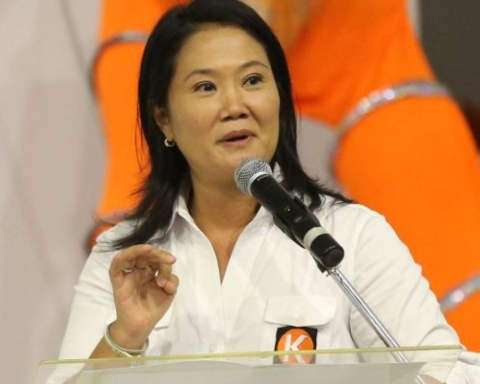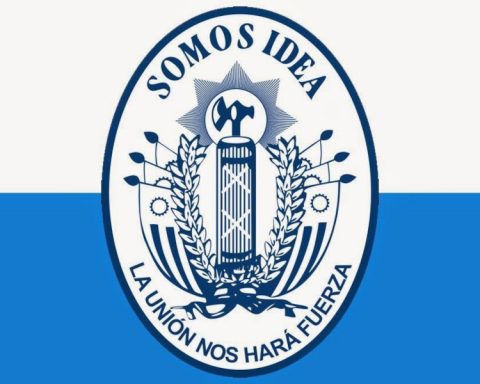
“The worst government in history.” The phrase corresponds to the former deputy and future minister of the Segegob, Camila Vallejo, who within hours of assuming the new administration thus described the outgoing Government of President Sebastián Piñera. A phrase that, although it reflects the feelings of a large part of the coalition that will govern, for some it put a difficult floor to comply with and opened a flank that will probably accompany them throughout the mandate. To make immediate differences and try to quickly print a new stamp, the appointed minister of the Segpres, and squire of President Gabriel Boric, Giorgio Jackson, gave the keys: “You have to note the ability to empathize, to communicate, prioritize and give them complexity to many problems that are not so simple”, he pointed out.
For a large part of those consulted, whether from the ruling party or from the opposition, the position adopted by the President-elect, Gabriel Boric, “has lived up to expectations”, even when experience dictates that the most complex thing to manage in the beginning of a Government are the possible and rapid frustrations that arise from the breach of an illusion that was sought to install in the campaign. President Sebastián Piñera himself knows this well, as he promised “better times”, which never came and which, on the contrary, led to his departure being marked by the lowest approval of a Head of State since the return to democracy. .
To explain the floor with which the new Government begins, the director of TúInfluyes, Axel Callís, pointed to the phrase of the future spokesperson, Camila Vallejo: “I think it was a phrase that catches you, because when you have governed you can say something. Now, on the right, all the problems that happen to the Boric Government can be considered the worst problems or the worst policies in history. It was a bad wedge, because it left you with a forced foot trying not to be wrong, and it is impossible for a government not to be wrong.
Meanwhile, the political analyst and academic from the University of Talca, Mauricio Morales, focused on the flanks with which the new Head of State will have to deal in the short term: “Boric will face a quadruple uncertainty that will soon destroy all the symbolism and emotionality that the assumption of command implies. First, a political uncertainty derived from the absence of majorities in Congress. Second, an institutional uncertainty reflected in the constitutional discussion and in the difficulties to advance towards a reasonable text. Third, an economic uncertainty indicated by the rise in fuel prices, inflation and the specter of stagflation. Fourth, an international uncertainty explained by Russia’s invasion of Ukraine. Another reality check corresponds to the latent conflict within his coalition, particularly between the more moderate and more extreme sectors”.
To win in the second round, Gabriel Boric was mainly concerned with sending signals to a world outside of Approve Dignidad, which sees with greater uncertainty the coming to power, not only of his person, a student leader and later reformist deputy, but also of a coalition that continually accused both the center-left (now part of the incoming government) and the right of being the same, as well as never having had enough political sensitivity to worry about the “real problems of the people”.
And it is that, just as the defeat in the first round led the President-elect to “put his feet on the ground”, the reality that is beginning to be written today will force him to quickly adjust not only the working mechanisms, but also the pieces that could start to “burn oil” early, said a source from the Government that assumes today.
It should be remembered that once they realized that with Approve Dignity they were not enough to govern, the President-elect began to shape a political narrative in keeping with the times, reformist and measured, aware of the challenges and responsibilities towards the country, with the environment, with mental health, and fully in tune with the cultural changes proposed by feminism. Along with the symbolism of an epic that accounts for a change in the political cycle, Boric was also concerned with strengthening ties with the rulers of the former Concertación. Appointments with former President Ricardo Lagos (resisted in Approve Dignity), appointments with former President Michelle Bachelet, and the inclusion of the former president of the Central Bank, Mario Marcel, were part of a turn for many that was unexpected, but necessary.
To all this was added an integrating speech, to which he added meetings with the opposition – out of all custom – and in his speech, once elected, he sentenced the feminist stamp of what his administration will be, he spoke of standing on “the shoulders of giants”, as a way to get rid of the heavy speech of cancellation of his sector with all the last governments since the return to democracy and that had become “a fairly heavy backpack”.
For now, and before assuming, his words have become flesh in the symbolic. The debut of a woman at the head of the Interior, a joint cabinet, the entry of the Ministry of Women into the Political Committee, prominent figures from the independent world at the head of strategic ministries, and a politically charged armed force, unlike the Government outgoing.
This was highlighted by the director of the Faculty of Economics, Government and Communications of the Central University, Marco Moreno, who maintained that “the design of the government team shows that Congress is going to play a very important role in driving it. That is why we have a former parliamentarian as Minister of the Presidency (Giorgio Jackson), a former parliamentarian as spokesperson (Camila Vallejo), the President himself is a former parliamentarian, the Minister of the Interior (Izkia Siches) is not a parliamentarian, but she will be flanked by two former parliamentarians, Manuel Monsalve (undersecretary of the Interior) and Miguel Crispi (Subdere)”.
All in all, analysts agree that President Gabriel Boric will have to “masterfully” be able to contain expectations, order his coalitions, convince the opposition, guide the Constitutional Convention, satisfy the demands for a better quality of life, delivering solutions in areas whose conflicts are so deep that no previous government has been able to lead them. An example of this is the Mapuche conflict, an urgent and pending issue, which is not the only one either. In other words, and as the analyst from the Center for the Study of Conflict and Social Cohesion (COES), Lisa Zanotti, advanced, “the President (elect) has done everything well, from the symbolic point of view, which is very good, but now will collide with harsh reality.
The shock with reality
Leaving speeches and signs aside, from this Friday and onwards the only one responsible for what happens in a large part of the country will be the new administration and – as he pointed out to The counter the director of Criteria Research, Cristian Valdivieso– “the faults of the previous governments last two months”. In this sense, the broken stock of crime, irregular immigration and the situation in the South Macrozone are widely recognized as the most complex problems to solve or address, because, unlike the outgoing government -and they have future authorities have made explicit–, an attempt will be made, at least, to account for the fact that these are processes and not quick resolutions.
But that is not all, an unfavorable Congress is also one of the main concerns of the new authorities, because, well they know, if they cannot cross the “pond”, that is, win votes in the opposition caucuses, it will be very difficult for them to to be able to carry out the reformist agenda with which they promised to change things, and which became one of the reasons for the support gathered in the presidential election.
For now, and according to the new formation of Parliament, only Approve Dignity (AD) is not enough for the third in Parliament and, adding all the forces of the former Concertación, including the DC, it still lacks a couple of votes to the simple majority. A similar situation occurs in the Senate: adding all of them, including the Christian Democrats, they barely reach a tie.
Added to this complexity is the mistrust that has been generated from the pole of what is also called democratic socialism with the future minister of the Segpres, Giorgio Jackson, whom they point to as the strong man of the political team. They accuse him of leaving them out of the big decisions, among them, the position that both the FA and the PC have had in the Constitutional Convention, and that from the beginning pointed to unicameralism, a “no minor” decision, they pointed out. In this aspect, representatives of the sector indicated that it is difficult for them to believe that the conventional ones act autonomously in this type of definitions. “If it is not through an order, they are letting things go, which is the same thing,” they added.
And it is in this space where one of the main differences that the future President will have to take care of is evident: the relationship between the two political poles that make up the conglomerate, or the “marriage of convenience”, as some call it. .
Although in both sectors they coincide with the government program, there are different “world” visions and where the Convention should point to. While from the former Concertación they do not agree with reforming “everything”, as they pointed out, from AD they point to a much deeper intervention of the current system, be it Executive, Legislative or Judicial. Added to that are old quarrels that not everyone is going to be willing to shut up.
In this regard, the dean of the UA Faculty of Social Sciences, Tomás Duval, highlighted this item as one of the most important, pointing out that “from a political point of view, it seems to me that it will have three important challenges, such as giving governance to this new coalition in terms of political decisions. Details and forms are very important in the Government”.
Regarding the Convention itself, Jackson himself noted in The Dailyfrom Uruguay, that “the Constitution that is finished being drafted and is plebiscited will be a decisive moment for the Government, not because the Government can continue or not, but because a good part of the reforms that we propose have the current Constitution as their main obstacle” .
In this framework, the director of the IES, Claudio Alvarado, elaborated, saying that “the greatest blow of reality or the main milestone where the Boric Government plays the management of political momentum, is its ability to influence the Constitutional Convention acquire a greater tone of moderation, agreements and dialogue, because although they run their separate ways, from the formal point of view, the truth is that the government coalition, and in particular I Approve Dignity, have the axis or part of the axis of the CC ”.
On this point, Callís maintained that “on Monday we are going to have the reality of two large areas. One, from the economic sphere, with galloping inflation, essentially dragged from the price of oil and commodities, which is rapidly devaluing the spending capacity of Chileans. Second, everything that has to do with public order. That is, not only what happens in Plaza Italia, but also migration. According to the survey that we saw on Wednesday, what has grown the most is anti-immigration, xenophobia, and the need to implement the law, which is made but is not being executed as it should, in terms of having some control over security, order and regulation.
For Kenneth Bunker, the issues that are going to be important for Gabriel Boric at the beginning of his term are short-term ones, unlike the epic story that the campaign has and that spoke of structural changes, resolutions of different types of inequalities. “What was most difficult for Boric to make a point about were the short-term issues, such as the economy, migration, all the factors that generate well-being in the short term. If Boric can incorporate those elements into his speech, long term, I think he can do well,” Bunker said.

















